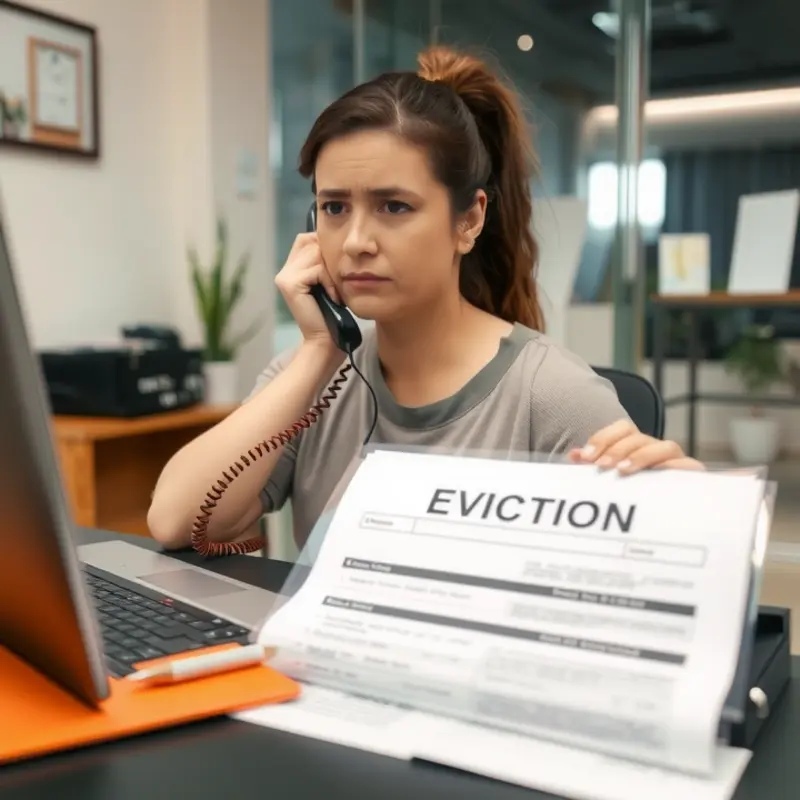Navigating the rental market can feel overwhelming, especially for young professionals, first-time renters, students, couples, and families. The prospect of eviction is a daunting one, but understanding tenant eviction protections can empower you to make informed decisions and secure your housing rights. Knowing what to expect and how to protect yourself in difficult situations is crucial to maintaining stability in your living environment. This guide provides essential insights into tenant protections across the U.S., helping you grasp key legal rights, the eviction process, and the resources available for assistance. Whether you are renting your first apartment or seeking a larger family home, gaining clarity about your rights as a tenant can ease your housing journey.
Tenant Rights: What You Should Know

As a tenant, understanding your rights is crucial to navigating the complexities of rental agreements and avoiding unfair eviction practices. Whether you’re a first-time renter or a seasoned tenant, being well-informed about your rights and obligations can significantly impact your rental experience.
Federal and state laws provide several protections for tenants. One of the fundamental rights under federal law is the Fair Housing Act, which prohibits discrimination based on race, color, national origin, religion, sex, familial status, or disability. Knowingly violating these rights is illegal and can invalidate an eviction or lease termination.
Understanding Your Lease
Your lease agreement is a legally binding document that outlines the terms and conditions of your rental. It’s essential to carefully read and comprehend each clause before signing. Key components typically include the duration of the lease, rent amount, maintenance responsibilities, and rules regarding alterations to the unit. Be particularly attentive to sections about eviction processes and penalties for early termination.
When reviewing lease agreements, watch for clauses that might be unusual or non-negotiable. If any part of the lease seems unclear, ask for clarification. Some states also provide standard lease agreements to protect tenants from unfair terms, and consulting with a legal advisor can help ensure your lease complies with local laws.
Protections Against Unfair Eviction
Evictions can only occur for legally specified reasons. Common reasons for eviction include failure to pay rent, breach of lease terms, or engaging in illegal activities on the premises. However, landlords cannot evict tenants without following due process, which typically involves providing adequate notice and obtaining a court order.
Notice periods vary by state. Some states require a three-day notice to pay or vacate, while others may mandate a longer period. It is critical to know your state’s specific requirements to protect yourself against premature eviction notices. Here you can find more detailed information about common lease agreement questions.
Documenting Issues with Your Landlord
Documenting issues with your landlord is vital if disputes arise. Maintain a written record of any communication, including emails or letters, concerning repairs, complaints, or any changes to your lease terms. Photos or videos of the rental’s condition can serve as evidence in case of disputes over damages or maintenance responsibilities.
If a landlord fails to make necessary repairs, you might have the right to withhold rent or make repairs and deduct the cost from your rent, depending on state laws. However, such actions should be taken carefully, with proper legal guidance.
In conclusion, knowledge of your rights can protect against unfair treatment and ensure a more pleasant living situation. Always stay informed about federal and state laws regarding tenancy. This awareness not only contributes to personal peace of mind but is also an empowerment tool against possible exploitation.
Navigating the Eviction Process

Understanding the eviction process is crucial for tenants who wish to safeguard their housing rights. Eviction typically begins when a landlord believes there has been a lease violation. Common reasons include unpaid rent, property damage, or persistent disturbances. However, tenants should be aware that landlords cannot evict tenants at any time without due process.
Eviction is legally binding only when the landlord follows certain steps. Initially, they must provide a proper notice, detailing the alleged violation and any corrective action required. The notice period varies, often depending on local laws and the reason for eviction. For instance, a ‘pay or quit’ notice might give you a few days to settle overdue rent.
After being served a notice, if the issue isn’t resolved, landlords may then file an eviction lawsuit in court. Misunderstandings often arise around this step, with the myth that an eviction notice alone implies immediate removal. In reality, the court must issue an order for eviction before a sheriff can physically remove tenants.
Upon receiving a court summons, tenants have the opportunity to contest the eviction. This is a critical time to respond appropriately. Attend the hearing, as failure to do so could result in a default judgment favoring the landlord. If you believe the eviction is unjust or the landlord did not follow proper procedures, present evidence and arguments during the hearing.
Legal aid is vital, and tenants should not hesitate to seek assistance. Many organizations offer free or low-cost legal services to help understand local eviction laws and prepare a defense. Furthermore, be mindful that some agreements allow for mediation, providing a platform for tenants and landlords to resolve disputes without escalated legal action.
In every eviction case, documentation is crucial. Maintain records of all communications with your landlord, any notices received, and proof of rent payments. These can be pivotal in contesting the eviction or negotiating settlements.
Finally, various resources are available to assist you. Local housing authorities, tenant unions, and legal aid societies often offer support. Eligible tenants can also explore emergency rental assistance programs, which help cover unpaid rent and potentially halt eviction proceedings.
For those seeking to better understand their lease agreements, check out frequently asked questions about lease agreements to ensure you’re aware of your responsibilities and rights as a tenant. Knowing how to read and interpret your lease can prevent misunderstandings from escalating into legal issues.
Navigating an eviction can be daunting, but understanding each step empowers tenants to take informed actions. With clarity, legal support, and access to resources, you can approach the eviction process with confidence and protect your housing rights effectively.
Final words
Understanding tenant eviction protections is vital for every renter, whether you are navigating your first lease, moving with your family, or studying at university. This knowledge empowers you to advocate for yourself and ensure that your rights are respected. Remember, you are not alone; resources and legal assistance are available to help you during difficult times. By being informed and prepared, you can rest easier knowing you have taken steps to secure your home.









